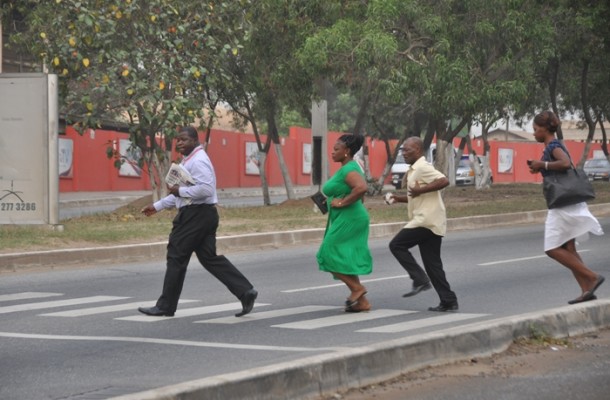Parking Per Hour to be Introduced in Nairobi County
The County Government of Nairobi will be enforcing a park-per hour...

Pedestrians beware. A charge of attempted suicide awaits you if you cross roads outside zebra crossings.
Crossing roads without following the directions of the traffic lights will also get you arrested and charged. The same goes to pedestrian crossing in corners and under foot bridges.
These are part of new stringent traffic rules, known as the Kamau rules, take effect Monday.
They are part of a new push to reduce road accidents and are named after Transport Secretary Michael Kamau.
Traffic police commandant Samuel Kimaru says traffic police will arrest pedestrians and motorists who flout the rules.
Those arrested for flouting the rules will be charged in mobile courts launched two months ago.
He said pedestrians should cross only at zebra crossings, failure of which they will be taken to court and charged with attempted suicide.
“These rules have been there but Nairobians have been ignoring them and endangering their lives and those of others. It is time motorists observe the rules. What are they for?” he posed.
Public service vehicles
The announcement comes just two weeks after the gazzettement of the rules that seek to consolidate Matatu ownership.
Under the rules, no individual will own a public service vehicle. Only organizations with more than twenty five vehicles will be given license to operate PSVs.
The Operation of PSV Regulations 2013, slated to take effect later this year, seeks to have all Public Service Vehicles drivers and conductors employed on permanent and pensionable basis.
Drivers and conductors will also have insurance covers, annual leave and scheduled shifts.
Vehicles belonging to a registered organization will have to clearly indicate the name of the company, and have a corporate colour for easy identification.
They must also have a central operating office where passenger complaints will be addressed.
The companies are also supposed to create a chart that indicates clearly the amount of money that passengers are supposed to pay for specific routes.
Passengers will not be required to pay higher fares during rainy seasons as is always the case in Nairobi.
All passengers will be issued receipts for every amount paid as fare.
Source: Nairobi News